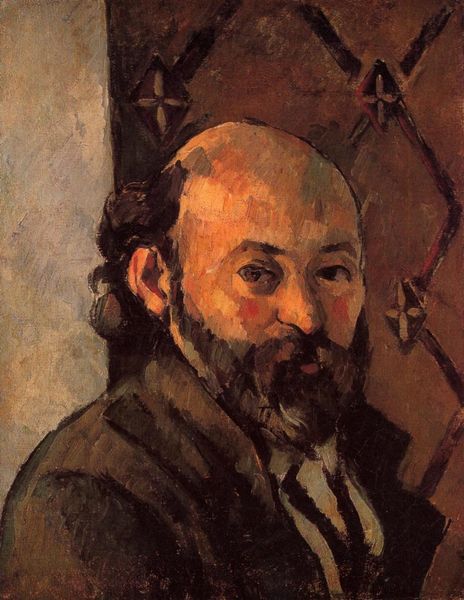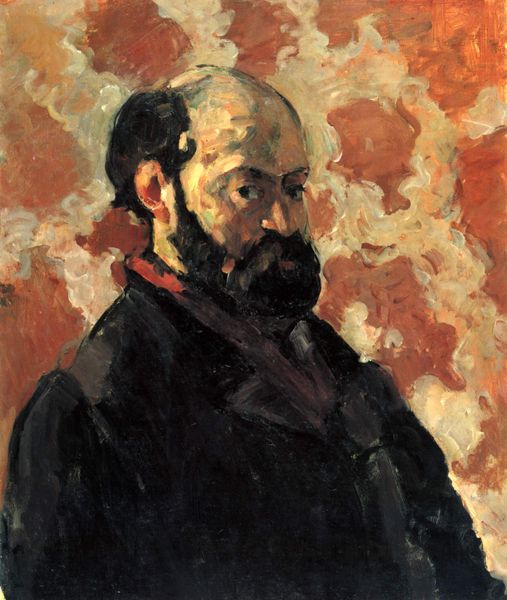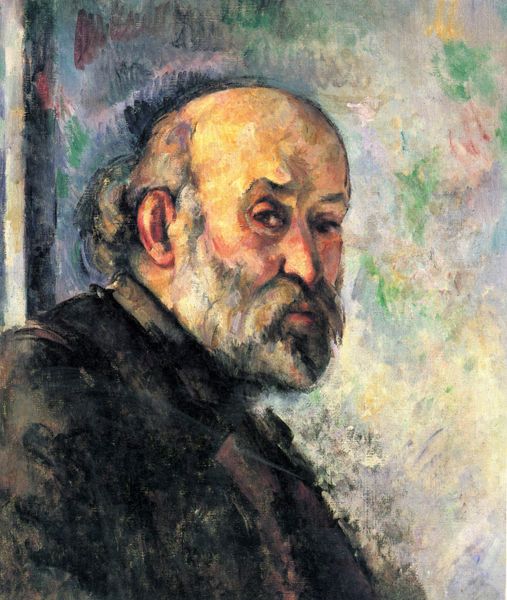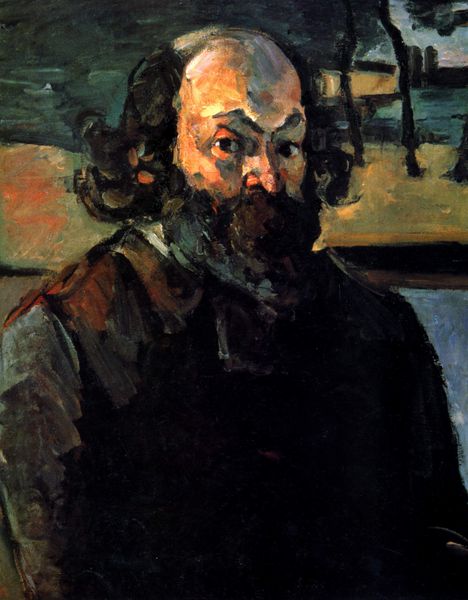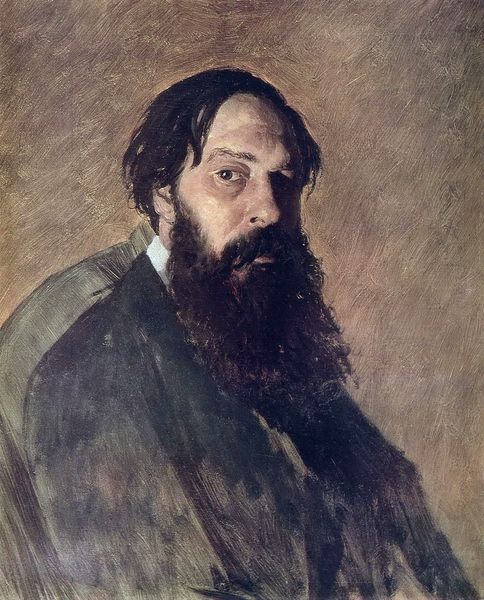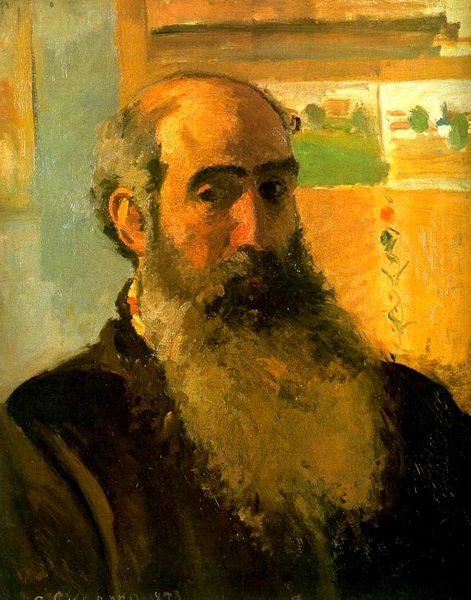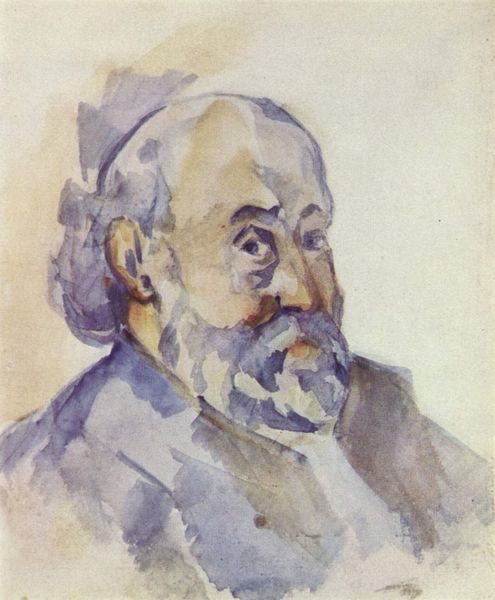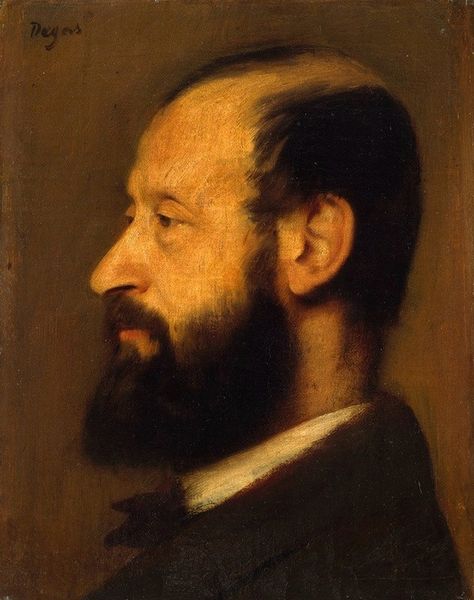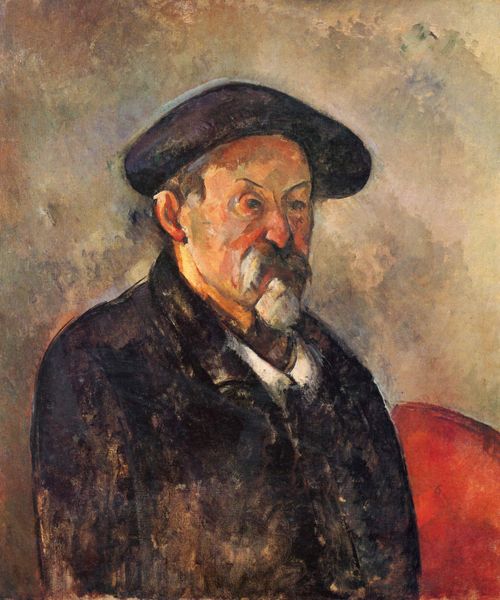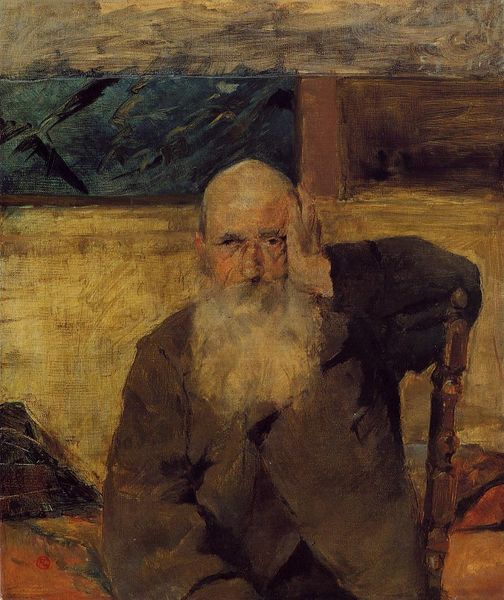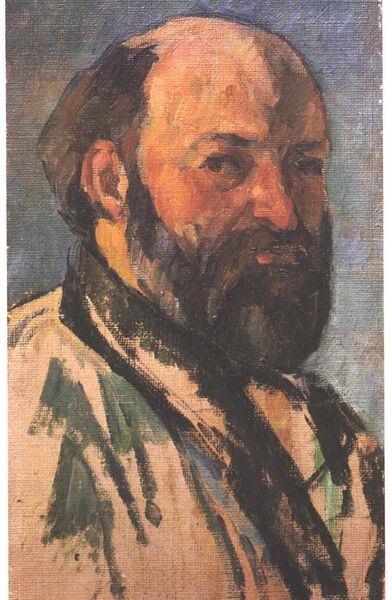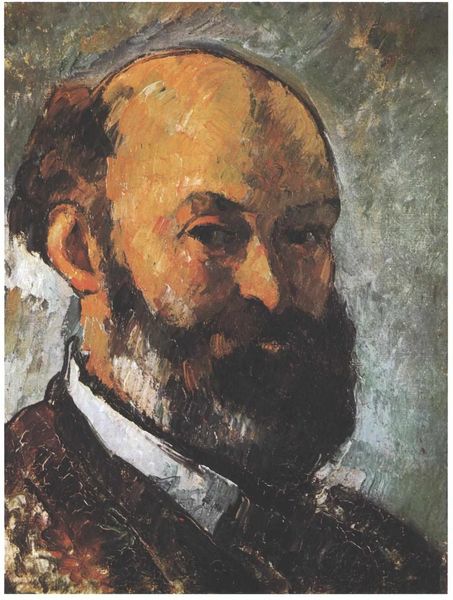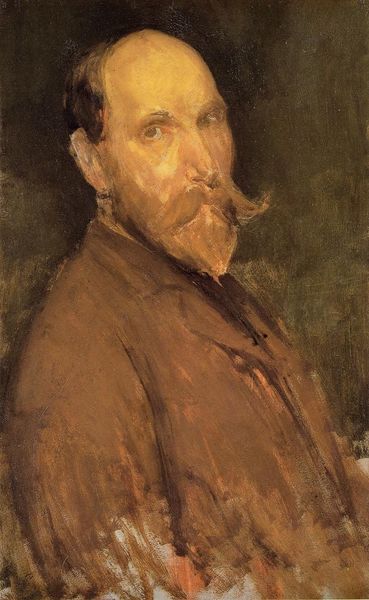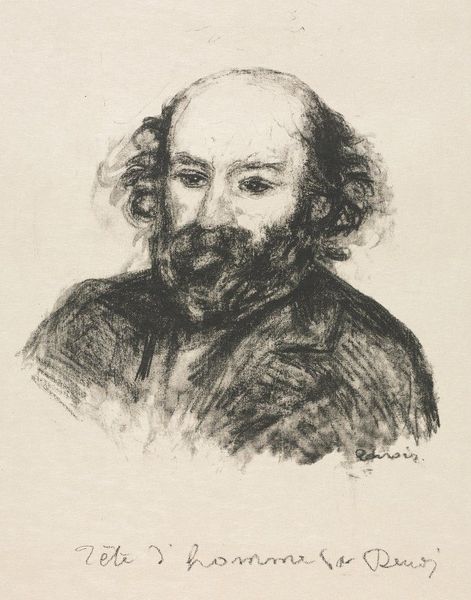
Copyright: Public domain
Editor: Here we have Paul Cézanne’s “Self-Portrait” from 1885, rendered in oil. I find it very striking, the way his gaze seems both intense and slightly averted. What stands out to you? Curator: What interests me most about this portrait is the socio-political statement Cézanne might be making by depicting himself in this way. How does presenting himself—an intellectual and artist—with such rawness challenge the academic art of his time and the bourgeois expectations associated with portraiture? Does this aesthetic, leaning into imperfection, make a comment on social values? Editor: That's a really interesting point! I was mostly thinking about the brushstrokes and the color palette, but considering it as a challenge to societal norms makes me see it differently. In what way was it challenging? Curator: The prevailing norms celebrated idealized beauty and technical perfection, often reinforcing class distinctions and established power structures. Cézanne’s style, with its visible brushwork and rejection of smooth, illusionistic forms, could be seen as a democratic gesture. Doesn't it imply that the artist rejects superficial refinement? He is showing us something more authentic. Editor: I see what you mean. By focusing on form and structure over idealized representation, he's making a statement about what's truly important, a more egalitarian approach to art. But wasn't that also just his style? Curator: Style isn't formed in a vacuum, right? Even an aesthetic choice to break away from convention carries political and social weight. How does choosing to represent yourself "warts and all" fly in the face of how upper-class portraiture typically displayed its subjects? Editor: It really makes you wonder about his intentions, or maybe even unconscious biases he was pushing back against. It’s definitely much more than just a painting of a man. Curator: Exactly. Considering these perspectives enriches our understanding. We realize how self-representation is itself a very powerful commentary.
Comments
No comments
Be the first to comment and join the conversation on the ultimate creative platform.
